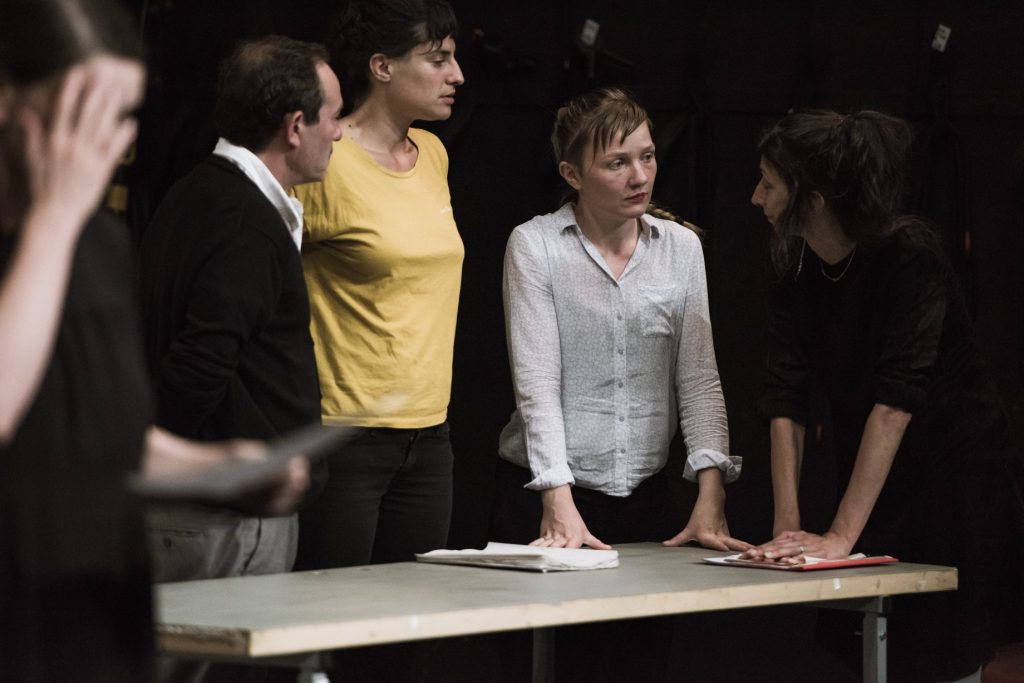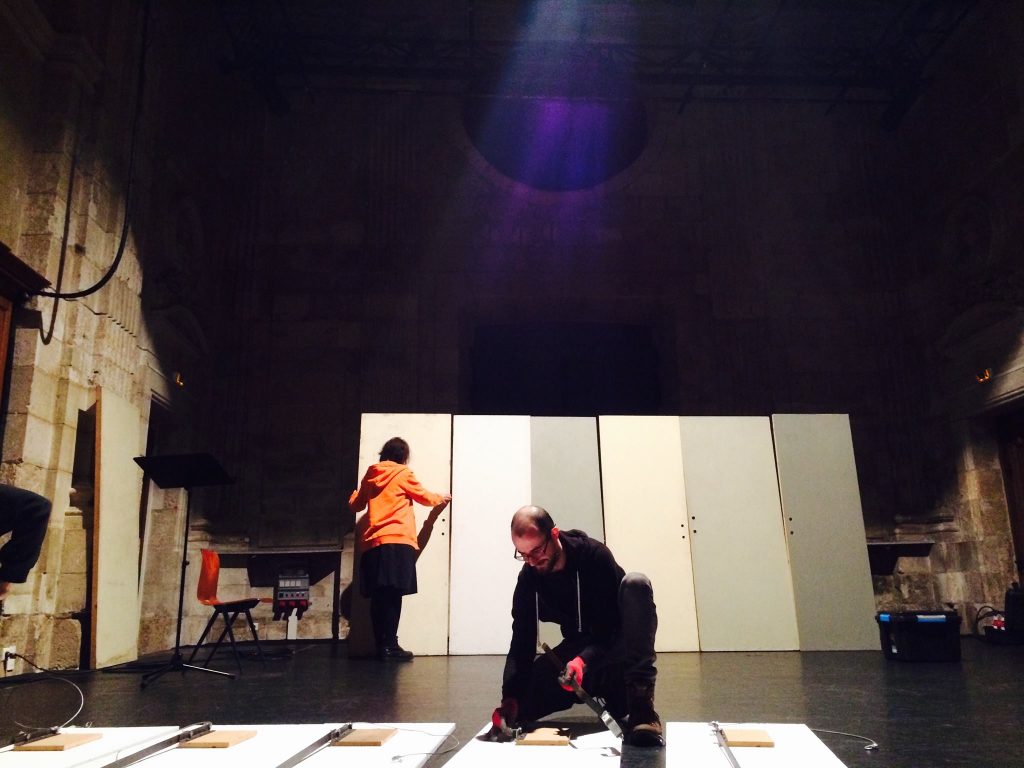Describe-ravage
Documentary theater about the Palestinian Issue, by Adeline Rosenstein

Much has been written about the origin of the situation in Palestine and Israel. From Napoleon by way of Lord Balfour all the way to the Nakba, the more you try to understand history, the quicker it eludes you. In ‘Décris-Ravage’ the Jewish actress and director Adeline Rosenstein attempts to explain the situation in six chapters. Her historicising approach, starting in 1799, is both enlightening and doomed to failure.
Rosenstein is a global citizen with a passion for documentary theatre. Along with five companions and the audience she heads off in pursuit of the ever-escaping truth. ‘Décris-Ravage’ is teaching, testifying, reading, translating and discussing the translation. Perspectives shift, relativism dissolves. What remains is intelligent, tender and humorous theatre, unique of its kind.
Originally from Switzerland, Adeline Rosenstein studied in Jerusalem and Berlin, worked in Buenos Aires and currently lives in Brussels. In her work she focuses on topical socio-political situations such as asylum seekers and women’s rights. Her latest show, ‘Décris-Ravage’, was issued in comic book form in 2016 by the Atrabile publishing company.
Biographie
German by nationality, Adeline Rosenstein was raised in Geneva, studied in Jerusalem and Berlin, and has worked between Buenos Aires, Berlin and Brussels. She trained as a clown under Pierre Dubey in Geneva, as an actor at the Nissan Nativ Acting Studio in Jerusalem, and as a theatre director at the Ernst Busch Academy of Dramatic Arts in Berlin. Since the early 2000s she has been working on documentary creation.
Based mainly on interviews and factual material produced by academics, her work deals with subjects as diverse as male Eastern European workers in Berlin, German Jewish exiles in Argentina during the last dictatorship and the history of what experts have to say about trafficking in women. She also works with associations, running radio workshops with a women’s literacy project, and collaborates with other artists as an actor, dramaturge and translator.
Technical Informations
Décris-ravage is a form of theatre-lecture with a simple and uncluttered stage device: between 4 and 7 doors serve as tables or walls, with trestles and boxes to rest them on, a musical instrument and amplification provided by the company, and possibly a dance mat.
The lighting comprises diffuse floodlights, down lights and reflective panels made from extruded polystyrene spread out across the stage and in the theatre. A light plot adapted to your venue can quickly be developed.
We can adapt to all kinds of stages, including unusual venues (conference rooms, marquees etc. but not outdoors). The space must have the right acoustics and be bare without curtains. Adaptations may require an additional day of rehearsals.
Capacity: 50 to 300 people
7 people on tour
Set up and rehearsals the day before the performance
Running time:
the show consists of six 30-minute episodes with short five-minute breaks between each episode and one interval.
episodes 1# to 6# : 4 hours with an interval
episodes translated in english : #1 & 2 & epilogue 2 hours

Written and directed by
Adeline Rosenstein
With
Céline Ohrel, Adeline Rosenstein, Isabelle
Nouzha, Olindo Bolzan, Erbatur Çavuşoğlu
Space
Yvonne Harder
Lights et technical direction
Caspar Langhoff
Sound
Andrea Neumann
External academic viewpoint
Jean-Michel Chaumont , Henry Laurens, Julia Strutz,
Tania Zittoun
Drawing
Verena Kammerer
Production
Leïla Di Gregorio
Translation
Claire Tarring
Photographies
Serge Gutwirth, Isabelle Nouzha, Hichem Dahes

Thanks to the following for their involvement :
Masud Hamdan writer, Samir Youssef writer, Julia Strutz urban planner, historian of the Ottoman empire, Sandra Iche
choreographic artist, Erbatur Cavusoglu
urban planner and rock star, Cécile Chevalier et
Franck Fedele puppeteers, Ledicia
Garcia lighting designer, Stefan Oppenlaender –
set designer, MAL-AIME by Marius&Leonie
costumes, Markus Meckl historian, Nicolas
Auzanneau translator, Natacha Bracq lawyer
juriste, Lilli Stern translator, Eleonore
Merza, Eitan Bronstein activists,
researchers of decolonisation, Eyal Sivan
filmmaker, Ronny Trocker filmmaker, Dalia Taha writer, Mariebeth Diggle singer and Hildegard Devuyst.
And to all the witnesses who put their trust in us.